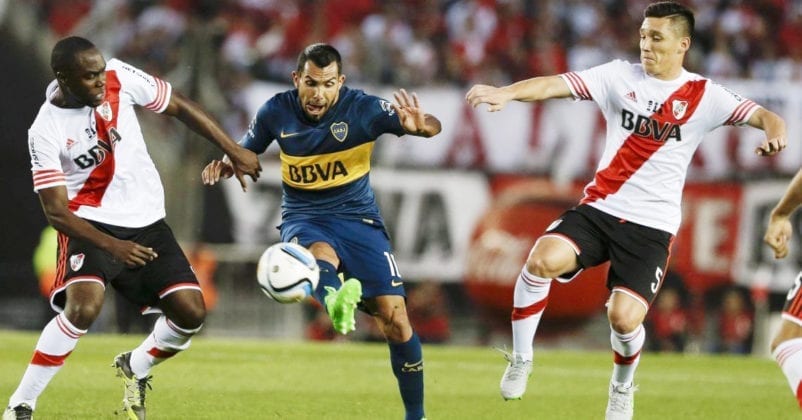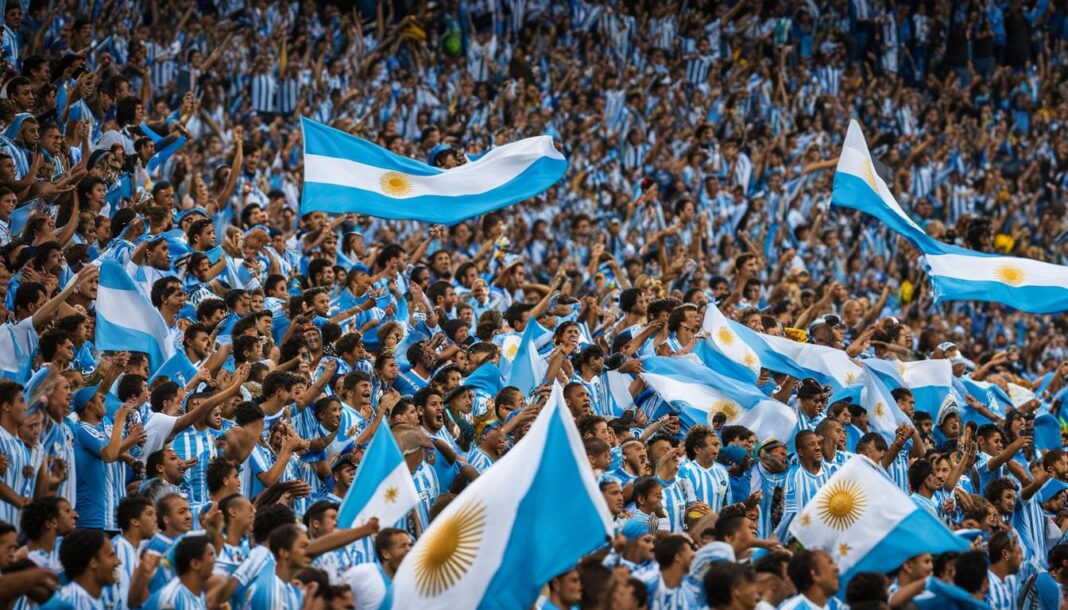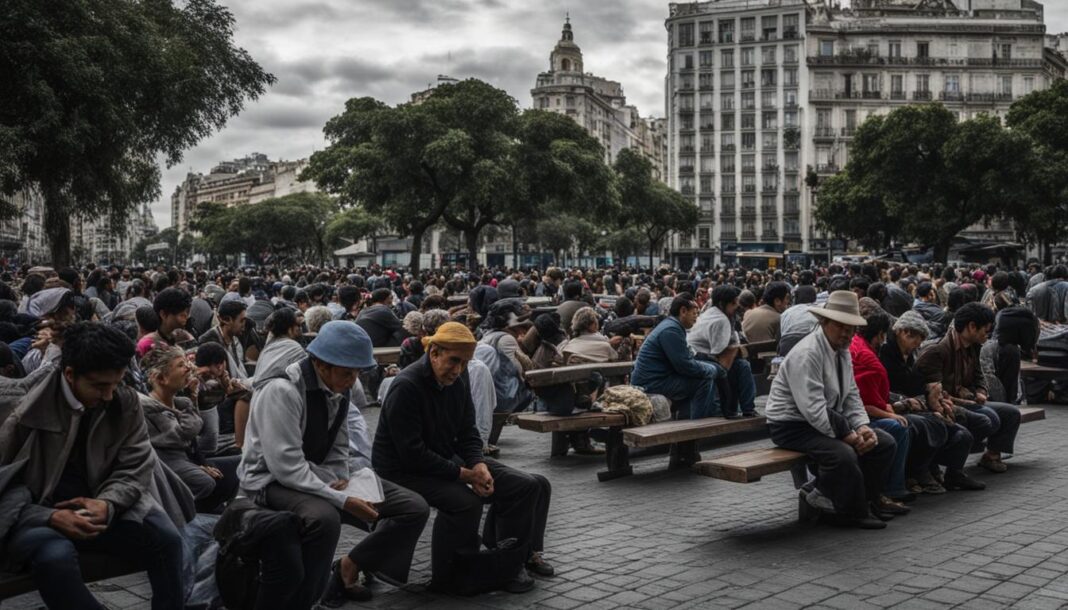
Elena
Table of Contents
- The Top 5 Argentine Football Teams:
- Football is Argentina’s National Passion
- Other Popular Sports in Argentina (Apart from Football)
- Read more about Diego Maradona:
- The Impact of Other Popular Sports in Argentina
From the moment I set foot in Argentina, it became unmistakably clear how deeply intertwined football is with the very essence of this vibrant country. It’s not just a sport here; it’s a pulsating force that binds the nation, a shared heartbeat that resonates through every city, town, and barrio. At the epicenter of this fervent passion stands the Argentine Primera División, a battleground where titans like River Plate and Boca Juniors vie for glory, their rivalries steeped in history and fueled by an unquenchable thirst for supremacy.
Living here, I’ve come to understand that football in Argentina transcends the boundaries of a mere game. It’s a cultural phenomenon that bridges gaps, forges connections, and weaves itself into the social fabric of the country. Icons like Diego Maradona are not just remembered; they are revered, their legacies etched into the national consciousness. Maradona’s infamous “Hand of God” goal is more than a moment of footballing brilliance; it’s a symbol of Argentine ingenuity and spirit, a source of endless pride and a story passed down through generations.
But to truly grasp the essence of Argentina’s sports culture, one must look beyond the surface. Football here is a reflection of the country’s soul, embodying the triumphs and challenges of its people. It’s evident in the way Argentinians talk about their teams, with a mix of fiery passion and unwavering loyalty that’s as intense as any political debate or family gathering.
This cultural significance of football has seeped into every aspect of Argentine life, influencing its art, music, and literature, creating a rich tapestry that portrays the nation’s identity. The sport serves as a universal language that unites individuals across different strata of society, offering common ground where none might otherwise exist.
Moreover, Argentina’s storied history in football, marked by World Cup victories and legendary talents, has helped shape the nation’s narrative, imbuing it with a sense of pride and collective identity that’s rare to find elsewhere. It’s in the jubilant cheers that erupt with every goal scored, in the shared silence of a missed opportunity, and in the hopeful eyes of young talents dreaming of wearing the revered blue and white jersey.
As I continue to immerse myself in this rich football culture, it becomes clear that the essence of Argentine football lies not just in the achievements of its most celebrated icons but in the everyday passion of its people. From the electric atmosphere of packed stadiums to the grassroots efforts nurturing the next generation of football stars, the impact of football here is profound and far-reaching, making it unequivocally the lifeblood of Argentina’s sporting culture.

The Top 5 Argentine Football Teams:
Dive into the heart of Argentine passion with “The Big 5,” the most illustrious football clubs of Buenos Aires, each a reflection of the city’s diverse social fabric and historical depth.
Boca Juniors, the people’s champion, wears its working-class heart on its sleeve, its colors inspired by a Swedish flag seen at the port. This club is synonymous with Diego Maradona and popular among tourists, although securing tickets often means navigating a sea of tour companies and inflated prices.
River Plate positions itself as the embodiment of elegance and style, mirroring the affluence of the Núñez neighborhood. Dubbed “Los Millonarios,” River’s narrative is intertwined with a class divide, making their matches accessible yet layered with symbolic privilege.
Racing Club offers a narrative of resilience, known as “La Academia” for its historical contribution to Argentine football. Its underdog status provides a unique allure, distinguishing itself from the commercial giants.
Independiente, the “King of Cups,” has a tale of financial strife and redemption. Renowned for their international accolades, their journey from near extinction to resurgence embodies the spirit of Argentine football.
Each club not only competes for glory on the field but also carries the weight of cultural significance, making “The Big 5” a cornerstone of Argentine identity and pride.
Read more:
Football is Argentina’s National Passion
Football is undeniably Argentina’s national passion, with the sport playing a central role in the country’s cultural fabric. The Argentine Primera División, the top professional soccer league in Argentina, is fiercely contested by clubs like River Plate and Boca Juniors. These clubs have dedicated fanbases that passionately support their teams, creating an electrifying atmosphere in stadiums across the country.
When it comes to Argentine soccer, one name stands above the rest – Diego Maradona. Maradona, considered one of the greatest football players of all time, holds a special place in the hearts of Argentinians. His iconic “Hand of God” goal and his magnificent solo effort against England in the 1986 FIFA World Cup quarterfinals are ingrained in the nation’s soccer history and celebrated with immense pride.
Argentina’s success on the international stage also contributes to the country’s soccer legacy. The national team’s victory in the 1978 and 1986 World Cups showcased Argentina’s talent and passion for the sport. These triumphs brought the entire nation together, uniting millions in celebration and reinforcing the cultural importance of soccer in Argentina.
Other Popular Sports in Argentina (Apart from Football)
While soccer dominates the sports scene in Argentina, there are several other sports that also stir the hearts of Argentinians. Basketball, tennis, field hockey, rugby, volleyball, handball, polo, golf, athletics, and boxing are some of the most popular sports in the country. These sports have their own dedicated fanbases and contribute to the overall sports culture of Argentina. Each sport has its own unique history, traditions, and achievements in the country, showcasing the diverse sporting landscape of Argentina.
Basketball has a strong following in Argentina, with the Liga Nacional de Básquet being the country’s prime basketball league. Many supporters follow the league passionately, and stars like Manu Ginóbili have emerged as role models for aspiring players.
Tennis also enjoys a substantial following in Argentina, with the country hosting prestigious tournaments like the Argentina Open. Guillermo Vilas, one of the most successful tennis players in the country’s history, remains an inspiration to many.
Field hockey, rugby, volleyball, handball, polo, golf, athletics, and boxing all have dedicated fanbases in Argentina, contributing to the overall sports culture. Each sport has its own respective governing bodies and competitions that showcase the talent and passion of Argentinian athletes.
Here is a table showcasing the popularity and key details of these popular sports in Argentina:
| Sport | Governing Body | Key Athletes |
|---|---|---|
| Basketball | Liga Nacional de Básquet | Manu Ginóbili |
| Tennis | Argentina Open | Guillermo Vilas |
| Field Hockey | Argentine Hockey Federation | Luciana Aymar |
| Rugby | Unión Argentina de Rugby | Marcos Milinkovic |
| Volleyball | Argentine Volleyball Federation | Adolfo Cambiaso |
| Handball | Argentine Handball Federation | – |
| Polo | Argentine Polo Association | – |
| Golf | Argentine Golf Association | – |
| Athletics | Argentine Athletics Federation | – |
| Boxing | Argentine Boxing Federation | – |
Read more about Diego Maradona:
The Rivalry: River Plate vs. Boca Juniors
One of the most intense rivalries in world football is between River Plate and Boca Juniors, two clubs based in Buenos Aires. The matches between these teams, known as the Superclasico, ignite unparalleled passion and excitement among fans. The rivalry is rooted in the historical, cultural, and social differences between the two neighborhoods represented by the clubs.
Read more about the rivalry:
The matches between River Plate and Boca Juniors are not just about sports; they transcend the boundaries of the football field. They are a reflection of the identity and pride of the people of Buenos Aires. The atmosphere in these matches is electric, with both sets of fans chanting, waving flags, and creating an unforgettable spectacle.
| Club | Titles | Top Players |
|---|---|---|
| River Plate | 36 | Angel Labruna, Enzo Francescoli, Ariel Ortega |
| Boca Juniors | 34 | Diego Maradona, Juan Román Riquelme, Martín Palermo |
The table above showcases the success of River Plate and Boca Juniors, two powerhouses of Argentine soccer, in terms of titles won. These clubs have produced numerous legendary players who have left an indelible mark on the sport.
So… Football in Argentina is more than just a game. It is deeply ingrained in the country’s culture and identity. From the passion of the fans to the success of the national team and the rivalries between clubs, soccer has an undeniable influence on the lives of Argentinians. It unites people, creates moments of joy and pride, and reinforces Argentina’s status as a footballing nation.
The Impact of Other Popular Sports in Argentina
While soccer, basketball, and tennis dominate the sports landscape in Argentina, there are several other sports that also make a significant impact on the country’s vibrant sports culture.
Field Hockey: A Passionate Following
Field hockey has a passionate following in Argentina, with the Argentine Hockey Federation playing a key role in organizing various leagues and tournaments. The sport has gained popularity, and players like Luciana Aymar, a legendary figure in Argentine hockey, have made a significant impact both nationally and internationally.
Rugby: Making its Mark
Rugby, overseen by the Unión Argentina de Rugby, has been steadily growing in popularity in Argentina. The sport has had success on the international stage, with players like Marcos Milinkovic making their mark. Rugby has a dedicated fanbase in Argentina and contributes to the diverse sports culture of the country.
Volleyball: Appealing to All
Volleyball has a wide appeal in Argentina, attracting participants from different age groups and fitness levels. The Argentine Volleyball Federation ensures the sport is well-organized and offers opportunities for both recreational and professional players. Adolfo Cambiaso is one of the notable figures who has left a lasting impact on Argentine volleyball.
Polo, Golf, Athletics, and Boxing: A Sporting Tradition
Polo, often associated with Argentine high society, has a rich tradition in the country and is organized by the Argentine Polo Association. Golf, athletics, and boxing also have dedicated fanbases in Argentina, contributing to the overall sports culture. These sports are overseen by respective governing bodies like the Argentine Golf Association and the Argentine Athletics Federation, ensuring their continued growth and development.
With their own unique characteristics and dedicated fanbases, these sports alongside soccer, basketball, and tennis, add depth and diversity to Argentina’s vibrant sports culture.



